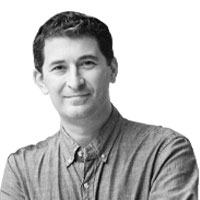The years I’ve spent years researching the American homeschooling movement and how it’s eroding the state hit home with the coronavirus.
Though my son is too young for us to consider these options, families in my corner of Brooklyn, and across the country, are banding together to form pods—small groups that have unenrolled their children, at least for now, and are hiring private tutors.
In crucial ways, these pods are just a new iteration of homeschooling—and what I’ve learned about the evolution of that movement while writing Homeschooling the Right: How Conservative Education Activism Erodes the State suggests that even a small number of families with ample resources forming these private groups present a clear and present danger to public schools systems and the state itself. Educating at home has a long history in America, but the contemporary conservative homeschooling movement began in earnest in the early 1970s.
At first, parents seeking to opt out of public schools came from an array of educational and political philosophies, from far-out hippies to strict Christian conservatives. This diverse coalition banded together and fought for state exemptions. By the end of the 1980s, homeschooling was legal across the country.
But during the fight, the conservative wing of homeschooling pushed aside other political voices and formed membership groups like the Homeschooling Legal Defense Association (HSLDA), which amassed political power in Washington and state capitals. One legislative staffer in Michigan told ProPublica, “I’ve never seen a lobby more powerful and scary.”
For HSLDA and its firebrand leader Michael Farris, the rights of families to legally educate at home was only the beginning. Farris had come up through the conservative movement and worked for organizations like Concerned Women of America. In his book, The Joshua Generation, he wrote: “The homeschooling movement will succeed when our children, the Joshua Generation, engage wholeheartedly in the battle to take back the land.” Elsewhere, he wrote, “Home-school teens could become one of the most powerful forces in American politics, rivaling the labor unions in effectiveness… The best way to train the leaders of tomorrow it to have our young people help to elect the leaders of today.”
Homeschooling was not merely a school choice policy; it was a means to a much larger conservative vision for the direction of the country.
When I interviewed the leaders of local homeschooling organizations, of which there are hundreds in each state, HSLDA came up constantly. HSLDA provides expert legal advice and representation, financial resources through its philanthropic foundation, and pedagogical help for families struggling to find learning material. One leader from Wisconsin explained to me, “The most knowledgeable person in Wisconsin [about homeschooling laws] is the lawyer that HSLDA has assigned to Wisconsin and a handful of other states.”
HSLDA connects homeschooling parents to other political issues, a strategy that frustrates some of them. For the book, I analyzed hundreds of HSLDA member emails and press releases. What I found is that HSLDA frames homeschooling as a precarious freedom under constant threat from the government. These threats, they say, are not just educational but inextricable from other social issues, like the definition of marriage, religion, and abortion. For many families, their identity is closely tied up in homeschooling.
HSLDA is not the only organization advocating for homeschooling, but it has been the loudest and most effective at expanding homeschooling from a single issue into a robust conservative political project. Based on American National Election Survey data, I found that homeschool parents are more likely to be Republican and conservative. And this is in part why George W. Bush, Michael Huckabee, and Ted Cruz courted homeschool families and relied on them as key Republican presidential campaign volunteers. Conservative gadfly Grover Norquist even called homeschoolers one of the six key voting blocs Republicans needed to beat Hillary Clinton in 2016.
Homeschooling has flourished since the 1980s, nearing 2 million students by some estimates before the pandemic when almost everyone abruptly became a homeschooler.
This fall, however, families forming pandemic pods will make a choice, a choice dependent on the financial resources to do so. The New York Times estimates pods will cost $2,500 per month per child, though that will vary greatly across the country and style of pod. There are no pod scholarships or subsidies, so this is a choice available only to those who can pay.
For these families, a pod offers health protections not guaranteed by a traditional classroom. Some pods may teach outdoors or limit the number of students. And a tutor teaching only a handful of students may bring some educational advantages to students, especially compared to unpredictable online learning.
Others have commented on the inequities of pods, but what I’m most curious about is what comes next. What happens to these pod families’ sense of community, trust in public institutions, and connection to other issues?
What I discovered about the dominant conservative wing of the homeschool community is that when they opt out, they do not abandon social connections and drop out of public life. Often, it is fighting hard against the government, pushing for looser regulations, and advocating for related socially conservative policies to insulate families and religious institutions from public oversight. All loosely coordinated with the larger conservative movement.
For the book, I interviewed some of the leaders of the thousands of organizations providing services to homeschool families, from small groups in rural parts of Arkansas, secular homeschool organizations in Virginia, and long-established groups in North Carolina that have been operating since the 1980s. One leader I spoke with said to me, “Homeschoolers are different than any other lobbying group. We are everywhere and part of everything… The other side totally underestimated us. We are not uneducated, hidden in some holler back in the woods.”
Families who choose to homeschool opt into what I describe as a parallel set of institutions, each vibrant and active but often detached from other institutions like Parent-Teacher Associations, local civic groups, and even athletic leagues. Only recently in many states—inspired by former Heisman trophy winning quarterback Tim Tebow’s experience as a homeschooled student who had to fight his way to play high school sports —have homeschool students been permitted to play in public school leagues. In the past organizations formed homeschool-only football, softball, and soccer leagues on their own. In some parts of the country, homeschools have been blamed for siphoning off students and declines in public school enrollment.
Given the financial resources needed to form a pandemic pod, it seems likely that these parents will form new organizations to share ideas, commiserate, and, yes, even lobby for policies that ease the way for them to educate in this way. If the pods are successful, why would they ever come back to public school?
This is because once you make this type of choice, and act on the freedom to opt out, the people around you and the organizations you start to hear from reinforce the values of individualism and personal liberty. This is true for a libertarian organization like the National Rifle Association which has promoted rugged individualism and self-sufficiency for decades. It is also true for the largest homeschool advocacy organization, the HSLDA, which I’ve found emphasizes liberty and freedom with its members much more than other educational organizations. So when families opt to homeschool, they are encouraged to view homeschooling as a part of their identity and vocally defend their rights at the sign of any threat from the government.
If something like this happens with families who join learning pods, it will be inconsistent with maintaining cohesive communities, tied together by a shared commitment to public values and schools. Pods will not save America, but they may continue to enlarge the portion of the population committed to self-protection and individual liberty—the same American values that have made dealing with the pandemic such a national challenge.




